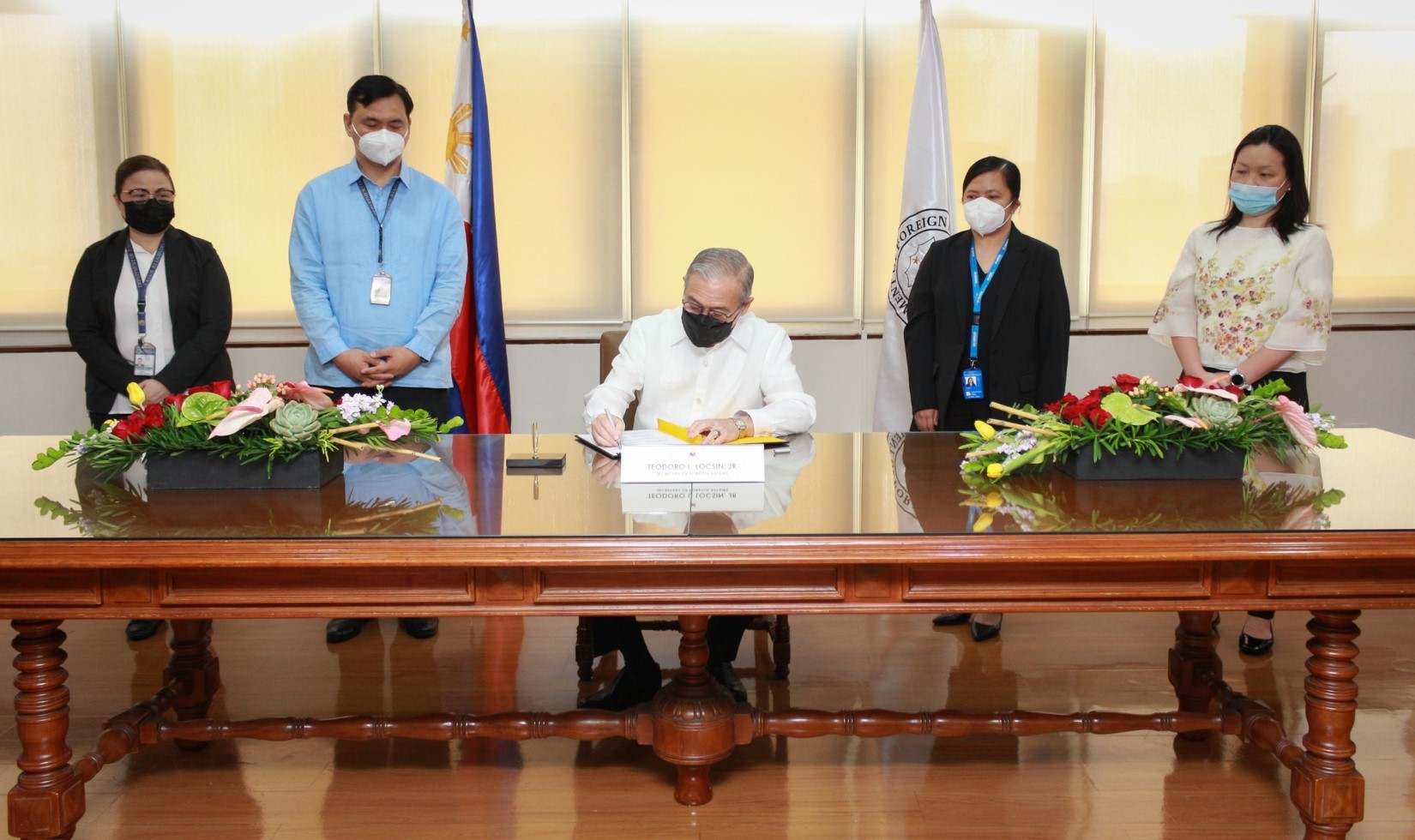News
DFA inks framework to allow Rohingya refugees to study in PH

Secretary of Foreign Affairs Teodoro L. Locsin, Jr. signs the legal framework for the Complementary Pathways (CPath) Program for Rohingyas. (DFA-OPCD Photo by Maria Vanessa Ubac via DFA/Website)
MANILA – Rohingya refugees could soon enter and study in the Philippines, the Department of Foreign Affairs (DFA) announced Friday.
A legal framework for the Complementary Pathways (CPath) Program would allow Rohingya refugees to avail of tertiary education training in the country.
The CPath program, set to be launched within the year, will link relevant government agencies and private institutions to provide educational pathways to eligible beneficiaries and help them achieve self-reliance.
“This initiative concretizes the country’s pledge at the first Global Refugee Forum in 2019 to explore complementary pathways for admitting refugees and President Rodrigo Duterte’s emphasis on protection for those fleeing for safety,” Foreign Affairs Secretary Teodoro Locsin Jr. said in a statement.
CPath is the first in the world to be created specifically for Rohingya refugees and the first one pursued by the Philippines, marking another milestone in its long tradition of extending humanitarian assistance to refugees.
Locsin congratulated the Department of Justice for shepherding the program and getting it off the ground.
He also thanked the office of the UN High Commissioner for Refugees (UNHCR) for its support to the Philippine government in this initiative and in the area of protection of persons of concern in general.
“The CPath program is another testament to the country’s leadership in humanitarian and statelessness efforts, having been a State Party to the 1951 Refugee Convention and its 1967 Protocol,” the DFA said.
According to the UN, there are over 909,000 stateless Rohingya refugees residing in Ukhiya and Teknaf Upazilas, Bangladesh as of March 2019.
The vast majority live in 34 extremely congested camps, including the largest single site, the Kutupalong-Balukhali Expansion Site, which is host to approximately 626,500 Rohingya refugees.
The Rohingya people have faced decades of discrimination, statelessness and targeted violence in Rakhine State, Myanmar, forcing them into Bangladesh for many years, the UN said.





















